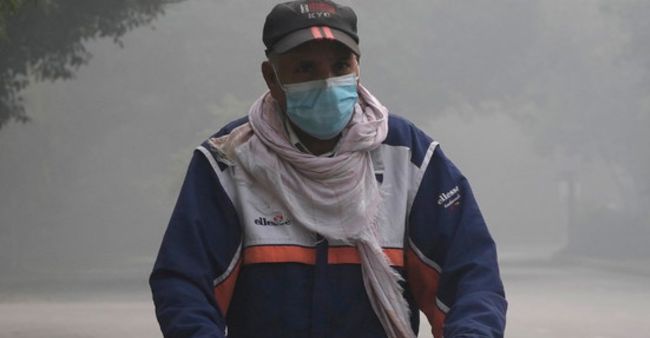Pakistan’s second-most populous city, Lahore, has plunged into a state of crisis as toxic air forces schools, public parks, malls, and offices shut down. The air quality index (AQI) in Lahore soared above 400, a level deemed “hazardous” by Swiss air tracking company IQAir, prompting urgent actions to address the environmental emergency.
Chief Minister Mohsin Naqvi of Punjab province declared an “environmental and health emergency” in three cities, including Lahore, Gujranwala, and Hafizabad, until conditions improve. Restrictions on the movement of people to and from these areas have been implemented, with both public and private transport affected. Naqvi’s office also issued a statement limiting gatherings to no more than four individuals in a single location.
The increase in pollution levels, exacerbated by colder temperatures trapping particles, has resulted in a toxic haze engulfing Lahore. Farmers’ traditional practice of burning leftover rice stubble, combined with vehicular and industrial pollution, contributes to alarming smog levels in the city.
On Thursday, the concentration of PM 2.5, tiny particulate matter, surged to nearly 450 in Lahore—30 times higher than the World Health Organization’s recommended maximum average daily exposure. The situation was deemed hazardous, as reported by Al-Jazeera.
On Friday, rain showers provided relief, resulting in a significant reduction in air pollution. The broader concern, however, remains, urging officials to address the root causes and implement long-term solutions to protect Lahore’s public health and environment.







